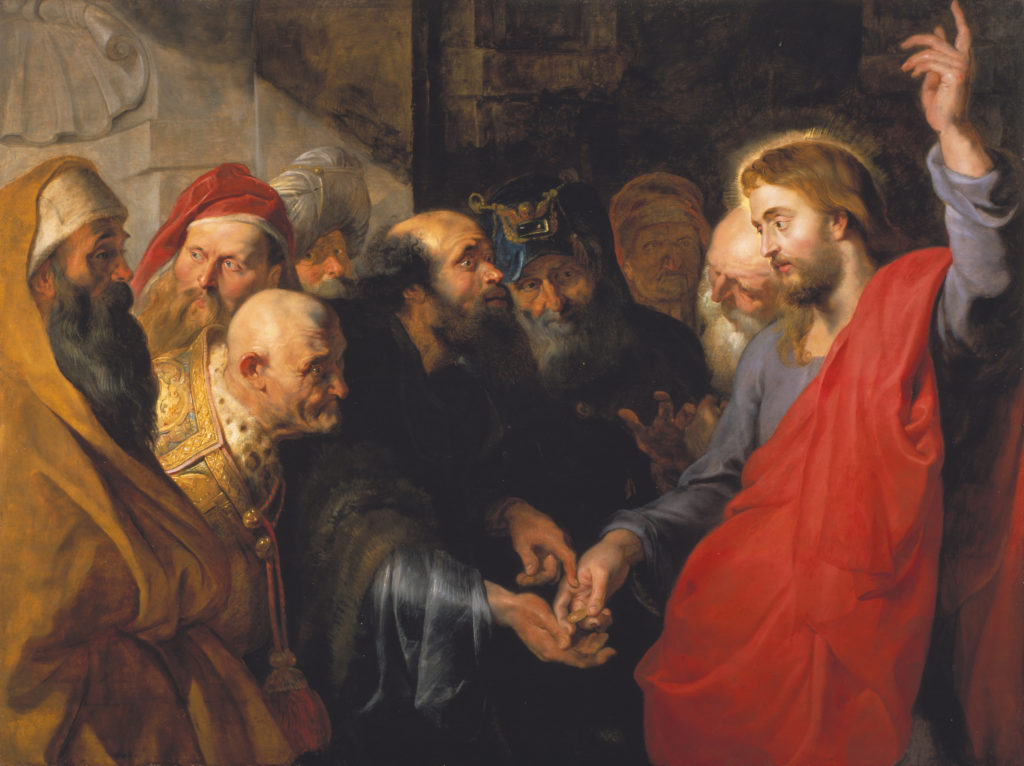It’s instructive to read some of the more notable mid-20th-century Catholic writers in light of today’s political and religious climate. How do their prophetic teachings and thoughts hold up 70 years later?
Carlo Carretto (1910-1988), Italian priest, social activist, and contemplative, authored several books, among them “Letters from the Desert” (Orbis Books, $9).
In a later work, “The God Who Comes” (Orbis Books, $16.99), he writes: “One of the most fundamental errors a Christian can make in our times is to mistake or identify the gospel message with the evolution of history or with social revolution.”
Adam, not Jesus, he avers, was the all-time revolutionary. “Man as created by God is already capable of understanding that one must not love on the blood of the poor, and that white skin is not more precious than black.”
Jesus insists on these truths with even greater strength, Carretto continues. But Jesus “did not come to free us from the chains of capitalism; he came to free us from the more painful, more radical chains that make every one of us at heart a capitalist — sin and death.”
The distinction is crucial, because everything depends on a correct understanding of the chains that bind us. Servant of God Dorothy Day (1897-1980) spoke of our “filthy rotten system” but while serving the poor with unswerving fidelity and profound courage, she also attended daily Mass, supported the Church’s teachings on marriage and the family, and engaged in an ongoing examination of conscience.
Without Christ, we become social workers, and our love for the poor can become linked with hatred of the rich. Without the Church, we decry war across the world while engaging in a ceaseless battle with our family members, neighbors, and the (to our mind) unenlightened. Without the Church, we become so “compassionate” that we wouldn’t dream of “imposing” Christ or organized religion on our beloved poor.
Having been one of “the poor” myself for many years, I can tell you that no one has a finer or more excruciating sense of guilt than the poor person; the addict, say, who is frittering away his or her birthright and is powerless to stop. No one hungers and thirsts more intensely for forgiveness. No one, surveying the state of their corrupted souls, more fully grasps the import of “Man does not live by bread alone.”
Without Christ, we tend to direct all our efforts, energy, mind, and strength toward obliterating the enemy “system” — rather than to loving God. While virtue-signaling and mouthing self-righteous platitudes, we can engage in the most egregious personal sins, telling ourselves God doesn’t care about our sexual morality, for example, or that we’re addicted to drugs, porn, and/or bitterness.
As Carretto pointed out, the “system,” all worldly systems, began in the Garden of Eden. The strong will always try to take advantage of the weak. Those who have will always want and scramble for more.
We can never obliterate the system, in other words, because the system is us.
The system is the world, and Christ’s kingdom was not of this world. Christ went about curing the sick, raising the dead, and prophesying in such utter integrity and love that he was bound to run afoul of any government.
He didn’t exactly cooperate with the powers-that-be, but neither did he direct his efforts toward resisting them.
He didn’t tell the centurion’s slave to rise up and throw off his chains; he healed him.
He didn’t say, “You owe Caesar, that whited sepulcher, nothing!” He said, “Render unto Caesar what is Caesar’s and to God what is God’s,” and left us to puzzle out what that means in our particular circumstances and time.
He seems to have been saying that the Way, the Truth, and the Life will avail regardless of the system, whether the system is totalitarianism, a monarchy, a democracy, a dictatorship, or “late-stage” capitalism. “You will have trouble in all of them,” he seems to continue. “And I am the only possible response to any and all of them.”
Caryll Houselander (1901-1954) was another popular mid-century writer. As she and her fellow citizens faced the brutal German blitz, biographer Maisie Ward contrasted her reaction with Day’s pacifism.
In “That Divine Eccentric” (Cluny Media, $24.95), Ward observed that Houselander “saw the conflict as a tragic inevitability, part of the suffering of Christ in which all in the Mystical Body must share. Day’s witness was political and eschatological, a radical affirmation of the promised kingdom through refusal to engage in the ways of the fallen world. Day contrasted the works of mercy with the works of war while Houselander saw mercy manifest in concrete acts of love within the fallen realities of the war-torn world.”
A distinction, perhaps, without much of a practical difference: both women devoted their lives to serving Christ through “the least of these.”
Houselander sums up our mission like this: Wherever we are on the continuum of rich and poor, contemplative and active, “In the Mystical Body we are all one, and we do all experience the Passion in a thousand secret ways, and we share — if we want to or not — in each other’s lives and responsibilities. … If every one was concentrating on being a ‘Christ’ in and through his own circumstances as they are, then I think that inevitably all the injustices would be righted.”

